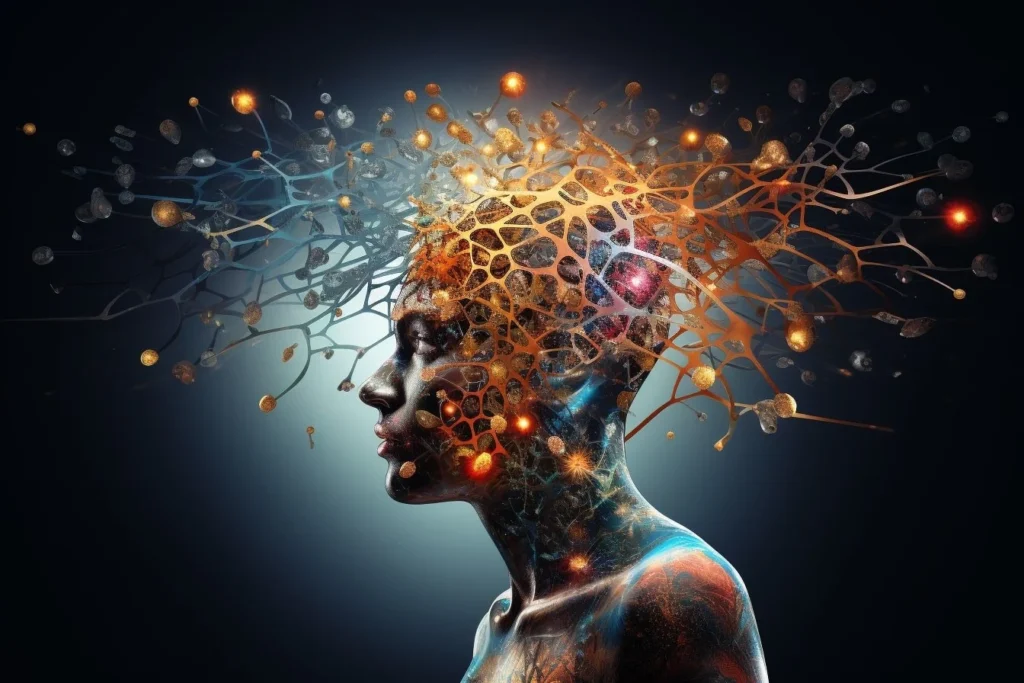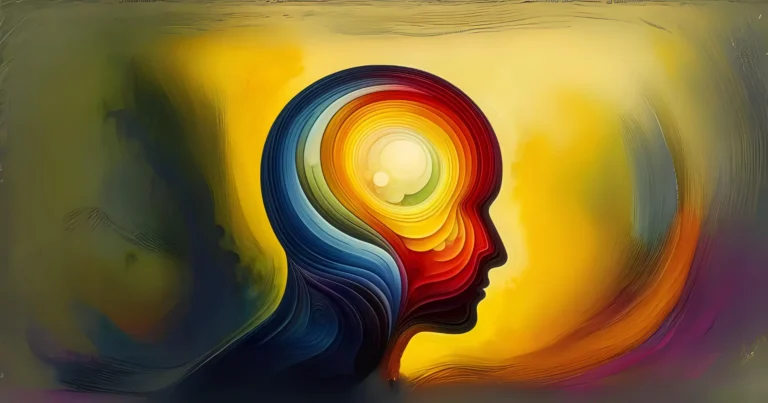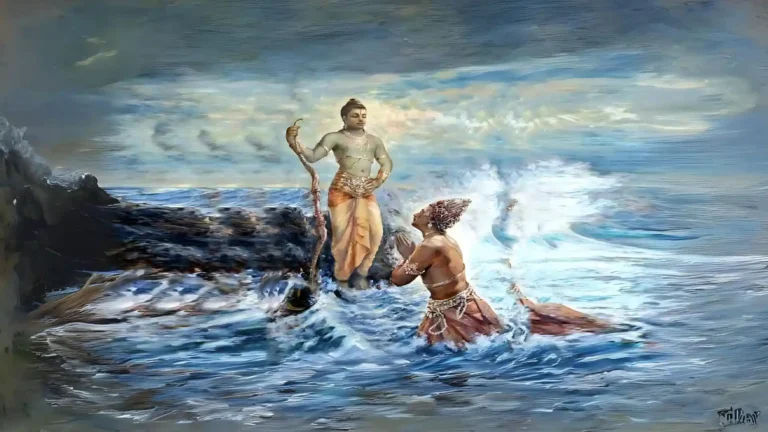Table of Contents
4 Classes of Mind related Problems
- Heaviness from impure thoughts.
- Scattering due to lack of focus.
- Procrastination and confusion (Pramada).
- Cheating mentality (Vipralipsa).
Why do people suffer from Mind related Problems?
The Mind comprises of experience, thoughts and world. We find many people suffering from mind-related problems. They cannot control their thought patterns.
They feel dull and depressed. So, let us try to understand the nature of the mind in this article.
Nature of the mind
The Mind has two qualities. The first quality is Heaviness, and the second is the tendency to Scatter.
Heaviness of mind
Heaviness relates to the content of the mind- what the mind thinks all the time. For example: Thinking about money to make ends meet is a good thing, but when we attach too many expectations to it, it becomes a matter of concern.

This is because day and night we are only looking for means to multiply the money we have. As a result, we lose our peace of mind and start feeling frustrated when things are not working for us. Even if money comes, there is a fear of losing it. Hence, such a thought process, brings in immense heaviness in the mind.
So, heaviness results from Impure Thoughts.Th is is one of the main reasons, stress is increasing in our lives today. Now again there are two types of thoughts
2 types of thoughts
Let us understand how we think…
Our thoughts can either be material or spiritual. Material though ts are of two types
Neutral thoughts and Destructive thoughts.
Neutral thoughts
These are thoughts related to gossip. In cities, there is this concept of kitty parties. Here, people play cards and engage in back-biting about their friends and relatives. After returning home, they harbour negative feelings against people they don’t like.

Hence, on the thought platform, they go on thinking about people and events, which makes them negative.In a nutshell, gossiping, backbiting, thinking about news-related discussions and other loose talks fall under the neutral thought category. The negative reaction is not immediate.
Yet, it builds over time, just like how rust forms on iron.
Destructive Thoughts
When neutral thoughts become a part of our nature, they transform into destructive thoughts. Destructive thoughts are the most dangerous. They directly harm the person. Therefore, the person cannot handle life situations or take simple decisions.

Thinking about violence, sexual content or anything that is related to the 6 vices are destructive. The 6 vices are intense negative emotions that are present in everybody. They are Lust, Anger, Pride, Greed, Attachment, and Envy.
Negative effects of Destructive Thoughts
When the mind is stuck in a loop of destructive thoughts, one feels dissatisfied. Here, there is a lot of energy drain.
Let us take the money example we discussed earlier.

If a person dreams about becoming a billionaire, without having worked for it, he is moving towards self-destruction. He thus engages in foul means like gambling, robbery and cheating. In this state, he spends all his money and energy hoping to gain more and more.
This immense greed for money in reality, leads him to a state of delusion making him a nervous wreck. Now, we have finished understanding the first quality of the mind that is heaviness.
Mind Scatter
Now we’ll cover the second quality that is the tendency of the mind to scatter. In this state, the mind jumps from one topic to another following no order. It is like a monkey that jumps from one branch to another. Here the mind scatters and there is this tendency to Postpone.
Hence, the mind throws up so many options leaving us totally confused.
7/8 Questions from Sanatana Dharma
The scores generated in this Quiz may or may not be absolute. There may be right or wrong answers to each Question. A percentage towards 100 indicates that you are more aligned to the overall subject matter.
Negative effects of Mind Scatter
How can we ever make the right decision with a scattered mind? Won’t this affect our job performance?

Obviously it will. Good-quality work requires a Focused Mind. A scattered mind will thus not allow us to give our best because most of our energy dissipates in useless thoughts. Very less energy applies to work. So, to excel in any field, we must train the mind and organize it.
Example of Celebrities
You might have seen extremely disciplined celebrities. They follow their fitness work-out routine daily and keep a tab on their diet. There is absolutely no compromise on their schedule and they reach their workplace, dot on time. This means they have a well-trained mind.
They have controlled their mind-scatter and have directed their energies in a specific direction.
Why do some celebrities meet a Devastating end?
However, in the long run, most of the celebrities meet a devastating end. They become addicted to drinking, smoking and drugs. Why does this happen?
We must understand this with full attention. Heaviness of the mind and scattering are two different things. Though celebrities have controlled their mind scatter, they have not paid attention to the building heaviness in their minds. They have yet not learnt how to handle success which results in pride.

Their mind is thus full of impurities. They gamble, cheat, drink and indulge in activities that go against our Vedic injunctions. So, just controlling mind scatter is not enough. Purifying the mind of its heaviness and controlling mind scatter should go hand in hand.
As Sadhakas, we must take care of this.
How to curb Mind Scatter
Let us look at the practices that can help us fix mind scatter. Following a fixed spiritual practice everyday. Chanting, yoga, pranayama and Likhita Japa keep the sadhaka grounded and control energy dissipation. These authentic practices force the mind to operate within a boundary. Thus, they do not allow the mind to wander at unwanted domains.
How do we get rid of the Heavy Mind now?
Satsanga- To get rid of Heaviness, the most effective remedy is Satsanga or listening to enlightened masters. Their words have the strength to penetrate deep into our unconscious mind and clean the muck of compulsions and distorted ideas. By listening to the glories of the Lord, our thoughts get purified and elevated.
We experience joy.

As a result, our mind feels light. Read Vedic Scriptures- Along with listening to enlightened masters, we can read Vedic Scriptures like Ramcharitmanas, Bhagavad Gita and Srimad Bhagavatham. Also, if we increase spiritual activities in our life, the destructive thought patterns get converted into spiritual thoughts.
Now, let us summarize this discussion.
Importance of Sadhana and Satsanga
The 2 qualities of the mind, Heaviness and Mind Scatter have to be dealt with, simultaneously. Just like a plant needs both fencing and suitable conditions like sunshine, water and soil to grow, a Sadhaka requires both Sadhana and Satsanga. Sadhana is like fencing the plant and protecting it from being eaten by cows and goats.
Hence, sadhana protects the devotee from the beasts of the material world. While, Satsanga or hearing the glories of the Lord is like watering the plant. Satsanga gives strength to the Sadhaka to sail through tough times. Just like both fencing and suitable conditions are required for the plant’s growth, Sadhana and Satsanga should always go hand in hand, in a sincere Sadhaka’s life.
However, we have to understand how and what is the sources of this Mind Experience and Turbulence of Mind. Such understanding will inspire us to perform Sadhana with diligence.
World Experience results from Mind Experience
Our world experience of the world has a different story to tell. The outcome of our sensory perceptions shapes what we see and believe. Our 5 senses throw projections of incomplete and skewed data.
That, we construct and construe as “our worldly experience”. Mind you, the experience is personal, just ours. These projections stand interpreted differently by different people, of different mindsets. Our sensory painting creates our illusion. Our claims to “reality”, simply result from illusion, sense-created illusion.

Hence our opinions, views, and perspectives remain coloured heavily with the mind’s own programming. This means that the mind is adding a lot of subjectivity to the actual view of the world. Perhaps, we even do not know the actual nature of the world or at least the one, we see “out there”. Our subjective reality differs from “Reality”.
Mind behind all the Mischief
Subjective Reality makes the mind, a highly uncontainable animal because that is what picturizes the world for us. In addition, the mind has biases, opinions, compulsions, and quirks. It becomes mad with untallied emotions.
Depending on our opinions of the world, we react, respond or manipulate our actions.
This makes it important for us to find the leanings of the mind so that our experiences of the world become relatively pleasant. The goal should be to know the world as close to “AS IT IS”. Only then shall our responses to worldly situations remain far from turning out unpleasant or inappropriate.
4 Defects of the Mind
Four defects possess us, according to the Vedic Scriptures; clearly mentioned in the Srimad Bhagavatham. They are confusion and procrastination (प्रमाद pramada). Next, inadvertence and inattention leading to illusion (भ्रम bhrama).
Then, cheating mentality (विप्रलिप्सा vipralipsa). Also, imperfection of senses (करणापाटव karanapatava). The mind and the senses, owing to these inherent deficiencies cannot capture the nature of inconceivable reality, Truth in all its glory.
Hence gaining knowledge through sense-perception and mental deliberation prove unreliable. We shall cover the four aspects in some detail.
7/8 Questions from Sanatana Dharma
The scores generated in this Quiz may or may not be absolute. There may be right or wrong answers to each Question. A percentage towards 100 indicates that you are more aligned to the overall subject matter.
Pramada (Confusion and Procrastination)
Human beings, right from the cradle give in to rest and sleep. This becomes an inescapable trait, bestowed on human beings by Mother Nature. In most human beings, this trait remains through their growing years.

The mind remains suspended and inactive and not worked upon enough. This being the case the mind remains steeped in ignorance.
Avoiding Work- A feature of Pramada
Thus, indolence, inertia, shirking activity, etc. become a driver for the mind to remain non-functional. The mind’s view of the world remains distorted and aligned perfectly to the mode of ignorance.
The man in Pramada does not feel the need to work. Man finds it better to postpone work and responsibility. One feels appropriate, passing on the buck and finding shortcuts to shirk work. Such behavior becomes the chief operating principle of life. One lacks interest in work owing to one’s shirking mentality.
Such people never understand the mechanics and philosophy of work. Naturally one thrives on misinformation and confusion about how one should approach work and the responsibility associated with such work. Naturally, character-building never happens in such people.
Even if one undertakes some work, it shall have too many mistakes and errors. Pramada can never work to one’s advantage.
The stringent laws of Karma that govern man’s comfort zones shall make life difficult if Pramada continues to stay. Going by that rule, one takes birth and has a body to undergo trials and tribulations. Take up Yoga to win over Pramada.
If one does not understand the law of Karma well enough, Pramada shall dominate. One has to undertake resolute training in the way Karma works and the way it distributes activity. When we undertake Yoga with a proper understanding of Karma, we can overcome Pramada.
Bhrama (Inadvertence and Inattention)
The deeper or severe state of Pramada leads to Bhrama. When postponement and shirking of work dominates, the mind manufactures mechanisms to view the world in an “imagined way”, to “feel better” . The Mind manufactures theories owing to its disoriented and disjoint function, hampered by Pramada.
One then lives on “lies” and becomes heedless to life situations. The person considers serious life situations as useless. One shall regard trivial things of the world as an escape mechanism and as very important. One shall understand Truth to be Lies and vice versa.

A world turned topsy-turvy. For example; when someone takes ill at home and requires attention, one shall neglect or ignore the situation. One shall think, that there are better things to do, why waste time with a sick person.Su ch a person shall automatically become insensitive and morbid, owing to Bhrama.
Bhrama literally means “illusion”. One shall spend money and time watching gossip, irrelevant news, and trivialities. One wastes time like a farmer trying to grow cash crops in a desert of a thousand years. Illusion dominates and disturbs the mental balance of the individual.
Cheating mentality results out of such an approach towards life situations.
Vipralipsa (Cheating Mentality)
Vipralipsa results from a skewed view of life situations owing to illusion and inadvertence. People find shortcuts to lead their lives recklessly. The first thing to happen with the mind: it becomes heavy with compromise and loss alignment with truth completely.
Life principles and Value systems that form the very basis of existence, one completely ignores and tramples upon. Man employs whatever means to earn his living and does not care about the process or mechanics of life. One should never compromise Dharma. The greatness of life is not about the goal or destination.

The whole fun rests in the way we undertake the process to reach the goal, irrespective of one attains the goal or not. This is Dharma.
When Vipralipsa takes over, Dharma reverses into Adharma. Here goal becomes predominant. That which started with Tamas or indolence takes an ugly shape. Goals set, may be unethical, hideous and harmful, to the person and the society. One shall then take up all ways and means without care for any process or person in order to attain success.
This shall be the most toxic, matured state of Pramada. This paves the way towards the ultimate doom of the individual whose mind has been destroyed by Vipralipsa.
Karana Patava (Imperfection of Senses)
This is an overarching position of the senses over all the previous three states of mental deformations. Senses are imperfect by their inherent nature. Since the senses remain sullied in materialistic engagements, they are blunt and weak.
Our senses are a treasury of Flaws. Our eyes prefer to see lusty and obscene visuals. The tongue gives in to taste many desirable and undesirable foods that include animal meat. We talk without control and gossip about all things misusing the tongue.
Our nostrils become addicted to pleasant smells and hence pampered. A woman’s flesh turns on a man. The man remains attached to the other sex without respite. We want to hear things in praise of us although we bitch and bicker about others. We like the touch of the other sex and want to indulge in immoral acts.
Given that our senses stand tainted, their ability to transmit and receive higher knowledge is minimal or negligible. Higher knowledge being subtle, refined, and superior, our matter-stricken senses remain incapable of assimilating any knowledge of inner value.
Thus, our senses contribute heavily towards the sullying of our minds and emotions.
Spiritual Practice has the Answers
The 4 defects of the mind contribute to creating a pseudo-personality within us. This personality distorts and demeans the very purpose of life. We should realize our infinite potential and revel in the gift that awaits us within our hearts.
In this, lies our life’s purpose. However, most of us are messing it up in the mind and left far behind from where we see very little chances of retrieving our real self. The answers lie in the problem stated.
We can easily sort out these defects of the mind. If we undertake spiritual training and discipline revolving around the innate abnormalities of the mind, things can be different. However, these very abnormalities, the average man of today, unfortunately, accepts as normal.
How can be we normal if goals, ambitions, selfishness, avarice, and lust drive us. Our irate minds simply leads us with no option.
How can Sanity come to us?
Only if humans filter out these impurities, that contribute to the 4 defects of the mind mentioned above, will they graduate towards the infinite divine. Now let us analyse what the so-called developed world has to say about mind and consciousness.
View about Consciousness in the Western World
Most of the Western World is of the view that Darwin offered. He said that consciousness develops from matter and evolution of all consciousness was after the construction of the universe. His view was that the entire universe was the first thing to appear following the big bang and consciousness appeared later and consciousness continues to grow to this day.

Although the theory appears interesting, there are some major flaws in the theory if one is to weigh these claims in the light of intelligence which is the extension or product of consciousness. The question is, if the universe appeared after the big bang, what caused the universe to come forth? What produces matter?
Western philosophy has no answer to this question. It is important to understand that the sages of Ancient India had already realized the origin of the universe much before the Western world could even take cognizance of the creation process.
True Nature of the Universe
It is consciousness alone that produced matter and also the distinct vibrations that manifest as thought, word and actions which again make up matter. The Vishnu Purana explains the whole genesis of the universe immaculately, in great detail, as also does the Srimad Bhagavatham.
It is to be understood and cogitated through sadhana and through spiritual discipline, nothing precedes pure consciousness and nothing else will remain other than pure consciousness. The appearance of the world and its variegated concomitants is simply a movement in the colossal ocean of consciousness.

Consciousness alone is on one side and the rest of what the senses can perceive are simply the evolutes of consciousness, there are mere disturbances in consciousness. Consciousness is the subject and the rest of all that exists, forms the objective world. Other than pure consciousness which is beyond the physical, astral and causal experiences, all that is part of the object.
We cannot view consciousness or experience it, because it is the experiencer. But its reflection on the subtler planes of existence, a reflection of consciousness on the purified mind, the subtlest, non-physical mind, also known as the spiritual mind helps one to sense that it is consciousness alone that is real and all else is a mere vibration within the field of consciousness which follows the path of duality.
Nature of Perception and Intuition
The greatest and perhaps the most important evolutes of consciousness is the mind. With mind comes the ability to perceive and sense.
These aspects of perception and intuition have varying degrees and depend on the sensitivity and sensibility of the living entity. Sense experience is then an aspect of such perception. Intuition, however belongs to the subtlest aspect of the mind and depends on factors which are beyond the mere experiences of our senses.
Nature of Knowledge and Experience
Knowledge comes from enhanced perception. It comes from the ability to sense, when matter is relieved from consciousness. Whatever comes out from practicality of this world, which is recorded as experience can be utmost an impression of that experience, it is dead information.
Anything that is planned by previous experience which stays in the mind, as a carried over experience may be useful for carrying our business as usual in worldly activities, it is useful for survival but cannot qualify as an instrument for grasping consciousness. One can use the information accumulated out of this impression on the mind in two ways.
One is to interpret the experience of the impression based on previous impressions already recorded in the mind or to use the current impression regarding a fresh viewpoint, which is forwarded to the mind from the source, from consciousness itself.

Hence there can be two types of responses possible, one is based on analyzing a heap of experiences and thus interpreting the current experience based on them which may include fear, over-caution, being carefree and other additional emotional content available as overtones of past impressions.
The other is to treat the experience with a fresh eye by considering the old experiences or impressions as reference but trying to interpret the experience in a new light, in the here and now. These two responses can be radically different. An example will help understand the two approaches better.
Example of a Vehicle used to get to a Destination
I have to decide whether I use my vehicle for a long distance travel. In the past I have had the unpleasant experience of the vehicle breaking down. I can recollect two bitter experiences with the vehicle and have limited time to decide whether it is better to take my vehicle or hire a vehicle for travel. I am also running on limited funds and I have to reach my destination in quick time. What do I do? Should I take my vehicle or what are the other options since I am running low on funds.
I cannot decide based on my earlier experiences:
I am overwhelmed and consumed by my earlier experiences. The experiences have been so bad that I dread taking my vehicle. I am falling short of options because I do not have enough money right now to hire a vehicle. The experiences have consumed me so much that I cannot do something about it and I am losing time. My experiences are freezing my actions because my senses and my mind have held me captive and as time is passing, I am getting nervous.
I can use the light of knowledge
I remember the old experience of being trapped mid-way. But then I am not trapped by the mind in that situation. I keep my mind active in the here and now. By doing this, I am making myself available to increasing awareness or consciousness since I have kept my experiences at a distance and hence they are not interfering with my availability to the present.
Soon I am flooded with ideas because I have allowed consciousness to flood myself with options. In the earlier case, since I only went by terrible experiences, my mind froze, so things never struck me. But when I gave a free hand to my inner self, the mind stopped scaring me.
Having forgotten in the first case that I had a neighbor who had a vehicle too, I could have requested him for help and promised to pay him for the gas. I could have called up a friend and found out options about making the travel as quickly as possible. In fact, there could be several options that could have emerged out of thin air if I allowed myself to be calm and allowed the freshness of knowledge to consume me. Pure consciousness exhibits its presence by transforming itself to knowledge.
A Lesson about Consciousness
It is to be understood that pure experience is of no use unless intuitive knowledge and perception about a situation is present, to use that experience. We understand that Knowledge becomes your capability through cogitation, meditation, contemplation etc that creates space and distances the mind for one to convert experience into expertise or to induce freshness into every new experience.
Pure experience is a dead thing incapable of adding value all by itself. Unless supported by the freshness of Knowledge no experience will deliver value. Experience is useful but knowledge is vital. When we see knowledge lit by consciousness, it transforms into wisdom.
You display your love by reading this valuable material. So kindly read and consider financially supporting us to keep our efforts going with renewed vigor! Supporters in India can donate via Razorpay while those abroad can use PayPal!






